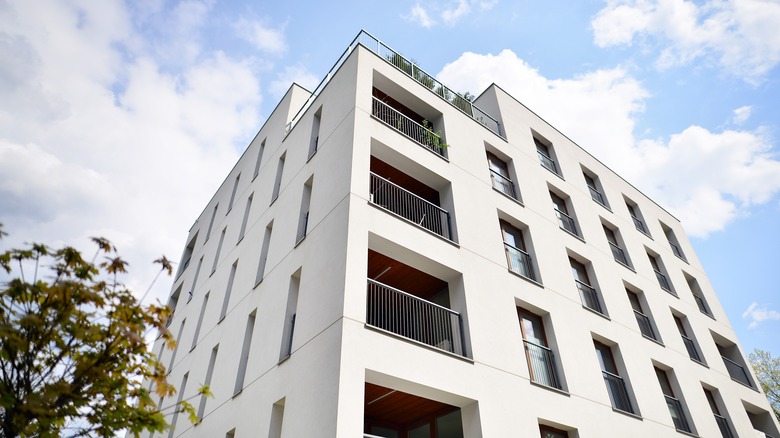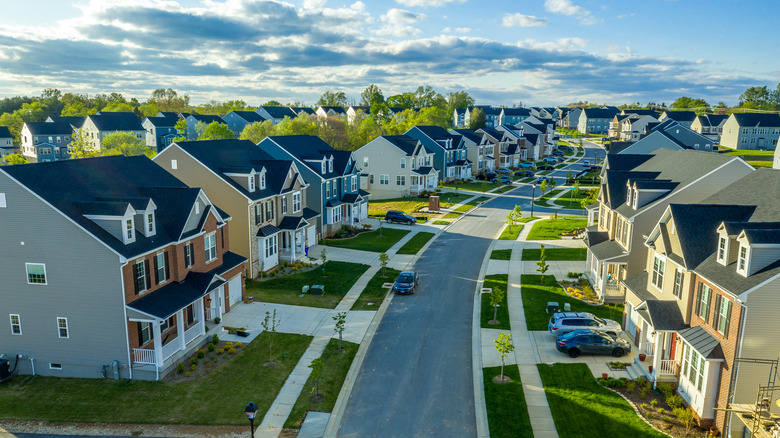10 Important Tips For Investing In Rental Properties
Investing in real estate can yield amazing results for savers looking to differentiate their portfolios. Real estate enjoys consistent growth over the long term, and many investors swear by this market as a means to supercharge their earnings potential.
In reality, there are many ways to get involved in the real estate market, but property investors are often broken into two categories: landlords and real estate flippers. Flippers are in the market to purchase properties at depressed prices, then they spend time, energy, and money to improve the property as quickly as possible to resell the asset at an increased price. Flipping houses is well documented on TV and in other forms of media, and it's more popular today than at any other time in recent memory due to an ultra-hot real estate market.
The other common type of investor in this asset is the rental property purchaser. Landlords are far less documented in reality TV, but they make up an important part of the residential marketplace, and the profits that a landlord can enjoy are substantial. On the surface, investing in rental properties seems like a no-brainer; the calculation is a simple one, with monthly rental income only needing to rise above the cost of outgoing expenses. But getting to this state of equilibrium or surplus takes a considerate effort and a bit of skill. It can be hard to develop these skills on your own, but with these 10 tips, you'll be well on your way to operating as a successful landlord.
Select properties with location in mind
Perhaps the most important consideration to make when evaluating properties is location. It's often said that location is everything, and in real estate, there is certainly a case to be made for its truth. Location establishes desirability, and it can therefore influence price dramatically. However, investors often fail to place this feature at the forefront of their search.
Location comes in a few flavors, however. Some look at the proximity of an investment property to their own home. But when investing in a rental property, you'll need to consider the neighborhood offers to potential tenants. For example, are there nearby transportation lines, shops, services, and entertainment opportunities? These are all crucial when selecting a profitable real estate investment. A home or apartment situated centrally in a city will be more expensive than one farther away from amenities, but they also command a higher rental price tag.
Think about your ideal tenant when browsing the market
Linked with the idea of physical amenities surrounding a property is the type of tenant that will use those features. A property in a suburb, for instance, is likely to be a family home. These properties are more likely to require the tenant to possess a vehicle, and they may be better suited to certain age demographics or family units. Alternatively, a studio apartment in the heart of your city is more likely to attract a single individual looking to take full advantage of all that the area has to offer.
There is nothing inherently wrong with either type of tenant, but you may be more comfortable dealing with one over the other. The type of ideal tenant for your needs and circumstances can dictate the type of property that you choose to invest in, as well as where it's located. This can also help you narrow the field down to fewer properties earlier in the search process.
Consider properties outside of your local area
It's important to consider properties in your local area, but you shouldn't limit your search to only homes or apartments that you can physically travel to on a regular basis. With technology improving our lines of communication and the bevy of property management services available to landlords these days, there is no need to invest in properties that are only near your home. There are benefits to both approaches, but expanding your net will always provide more opportunities.
As a result, if no properties that match your criteria can be found within your area, you can simply widen the search rather than give up. In order to invest in any new asset, you'll need to conduct a considerable amount of research. And investing in a new marketplace can open your eyes to the possibilities that exist beyond your local space.
For one thing, this allows you to invest with confidence in a wider search area. But, it can also be informative for future stages of your own life. For instance, many Americans from northern states retire in Florida to enjoy the nearly year-round sunshine. Investing in Florida properties before you're ready to retire can give you a more nuanced understanding of the local property market and lifestyle before you take the plunge yourself.
Be realistic about your profits
Another key tip when entering the property market is to remain humble with your aspirations. It can be easy to imagine big profits, leading you to assume you'll make a fortune investing in properties. Sure, over the long term, it's certainly possible to continue reinvesting profits into more property assets and building a significant income stream. But rental profits are akin to dividend payouts — they flow into your account in a consistent trickle rather than a deluge. Purchasing your first rental property will not give you the immediate ability to retire, but it can bring you significantly closer.
Purchasing your first rental property and any subsequent assets may be done with borrowed cash in the form of a second mortgage. This means that for a number of years, your ongoing monthly profit will be essentially split with the bank as you pay down the mortgage loan. Over time, however, you should see a consistent uptick in the amount of rent you charge to each new tenant while your mortgage payments remain static (if you have a fixed-rate mortgage). This means that your return on investment will continue to rise over the long term, giving you even greater financial security for the future.
Consider heightened down payment requirements
When investing in rental properties, you will most likely use a mortgage, just like when buying the home you live in. But rental property purchases operate a little differently than homes intended for personal use. For one thing, your mortgage lender will approach you as someone who wants to buy an investment rather than purchase a home for your dwelling requirements. This means that you may face additional scrutiny of your finances, and first-time home buyers may not be eligible due to a lack of firsthand knowledge surrounding general homeownership and property management.
You will also likely need to contribute much more than the minimum down payment requirement of a home you'll be living in. Today, the average down payment on a domestic dwelling is about 6%, whereas property investment requires at least a 15% deposit, sometimes rising to as high as 25%.
Keeping this increased initial requirement in mind will help you save up for the investment in your first rental property. Failing to recognize this can set you back when scouring the market for new assets. As with any effort to purchase a home, you need to be sure that your finances, including the down payment amount, are in order before you make an offer.
Prepare for the additional strain on your finances with increased savings
When purchasing a rental property, it's essential to get your finances in order before you can start cashing in on the asset. As the landlord, you'll be responsible for repairs and maintenance costs. As any homeowner knows, these can come without warning and potentially be very expensive. It's a good idea to set aside enough cash to cover three to six months of regular expenses while managing a property as a landlord. This gives you flexibility when it comes to paying your mortgage, repairing issues in the property, and the cost of finding new tenants if your current renter moves out.
In an ideal world, you'll never have a vacant property to cover the costs of, but in reality, this will happen more often than you might think. Often, landlords can find new tenants fairly quickly, but this is not a certainty by any stretch of the imagination. If the property sits vacant for an entire month, you will have to cover mortgage payments, property tax, and other expenses. As a result, you should plan for additional emergency funding before jumping into the property market.
Brush up on your DIY skills
One thing that can become costly for a property owner is hiring out trade professionals. Paying a handyman to fix the dishwasher or to install a new doorbell can quickly become costly. In addition to the cost of parts, you'll be paying for the expertise of the professional who comes out to the home. Every outgoing expense on a rental property reduces your bottom line earnings, so anywhere that you can cut costs provides a benefit. As such, many landlords also operate as their own repair professionals in narrow or even broad circumstances.
Improving your DIY capabilities is great for homeowners of all sorts, but when it comes to the careful budgeting requirements that go into property management, these skills can make the difference between a profitable asset and one that merely breaks even — or even loses money over time. Of course, there will be certain updates that require assistance (like window replacements or electrical work), but if you can do it on your own, you probably should.
Keep capital in reserve for emergency repairs
Damage to windows, cracked concrete driveways, foundation issues, and many other significant problems that can creep into a home will require your immediate attention and often involve a significant bill. Separate from, but equally important to your operating cash reserve for things like continued mortgage payments and taxes, is a fund designated for repairs and essential property services. Because of this, you should save 1% of the property's value for essential maintenance and repair needs.
There is a fine balance that is struck between landlords and tenants. Tenants must understand that repairs cannot happen overnight, especially highly technical or expensive ones. Yet, a landlord must always engage with their tenant in good faith and work to resolve any issues that the tenant experiences promptly and efficiently. For example, a leak that damages the foundation requires immediate attention, regardless of how expensive the repair might be. Keeping reserve funding for these types of emergencies will allow you to maintain financial balance in your own life and avoid having to dip into your regular budget.
Research tax implications and potential benefits
Tax implications are an important consideration to make when investing in a real estate property. Your investments are taxed individually, and there is a complex formula for understanding realized and unrealized profits, dividend payouts, and every other financial gain or loss that may result from your investment endeavors. The IRS provides guidance on how to account for and make deductions in relation to an investment property, and other sources can be a benefit when preparing your yearly report.
Owning a second home and renting it out will certainly involve some tax implications, and it is your responsibility to understand what you'll need to pay in taxes to the IRS every year. However, there may be some financial incentives to owning a real estate property instead of some other asset (like gold bullion, REITs, or general stocks). For example, you can deduct your mortgage interest or property taxes. Before getting into the real estate market, you must take the time to research and understand your tax responsibility and all the potential benefits that might come from adding a second property to your real estate portfolio.
Determine the level of involvement you want to take on as a landlord
Lastly, you'll need to determine the level of involvement you want in the asset. It is possible for a landlord to take a completely hands-off approach, hiring a property manager to do all of the work for them. In this instance, a property owner simply pays a manager to act as their agent in all things related to the property. Your profits will be shrunk somewhat by this arrangement, but your only obligation to tenants is a financial one. Your property manager will collect rent, organize repairs and service needs, and everything else in between.
Alternatively, a property investor can be completely hands-on, managing everything about the property themselves. These landlords will find tenants on their own, collect rent, and act as the leaseholder's point person when any property issue arises. These landlords can save a lot of money on property management services that would eat away at the profit margins. The tradeoff is one of convenience. If you're investing in a property in your local area, you can take any level of involvement you want or feel comfortable with. On the other hand, if you are investing farther away, you may need to rely on the services of a professional property manager who's local to the area.
Many investors employ a hybrid model, using property management services to find tenants and draw up contracts, but then manage the property directly. This type of arrangement can give you the combined legal and logistical support for finding and contracting with tenants, but also allows you to have that personal connection that keeps them in the property.










